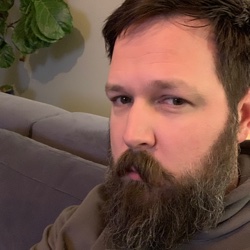PASS 2011 Session Abstracts
Every November, a bunch of database geeks gather for the Professional Association for SQL Server’s (PASS) international Summit. This year it’s going to be held October 11-24 in Seattle, Washington. I didn’t submit last year since I was involved with the abstract selection process. This year I’m not involved, so I decided to submit a few abstracts.
Rewrite Your T-SQL for Great Good!
Refactoring SQL is not like refactoring application code. This talk will cover proven SQL refactoring techniques that will help you identify where performance gains can be made, apply quick fixes, improve readability, and help you quickly locate places to make sweeping performance improvements. Jeremiah Peschka has years of hands on experience tuning SQL applications for performance, throughput, and concurrency. Why I submitted this session: I submitted this session because it’s a fun session to give, it crosses boundaries between DBA and developer, and I’ve given it a few times before.
The Database is Dead, Long Live the Database
If relational databases are so great, why are people talking about NoSQL? Shouldn’t we explore other ways to store and manipulate data? We’ll look at four scenarios – caching, session state, flexible data models, and batch processing – and discuss how traditional databases perform in each situation and what other options exist on the market. At the end of this session, attendees will have a better understanding of how different workloads perform in RDBMSes, best practices, and alternative storage solutions to make your life easier. Why I submitted this session: I wrote this session when I was asked to speak at Stir Trek: Thor Edition. Writing it has been a lot of fun and has started the process of crystallizing a lot of the ideas in my head around data storage. This talk focuses on a few areas where relational databases don’t do a good job and proposes solutions to pick up the slack.
Rules, Rules, and Rules
Computers are governed by the rules of physics: electrons, drive heads, and disk platters can only move so fast. Database systems are built according to those rules: memory is faster than disk which is faster than the network. Database schemas and queries are built within the rules of database systems. You will hit the limitations of these rules. If you know what the rules are and why they are in place, you’ll know when it’s time to break them… and how to succeed. Why I submitted this session: This is also a session I’ve given before. Andy Leonard asked me to speak at the inaugural SQLPeople event about my passion. One of my passions is learning about computer science and how it can be applied to databases in a practical way. (There’s a lot of purely theoretical information that only matters when you’re implementing an RDBMS.) This session is an extended version of the talk I gave at SQLPeople. I’m incredibly excited about it and I’ll be bummed if it doesn’t get accepted.
The Other Side of the Fence: Lessons Learned from Leaving Home
Traveling the world changes your outlook on things, home just doesn’t look quite the same once you’ve traveled. The same can be said for SQL Server; working with databases like PostgreSQL, Cassandra, and Hadoop forced Jeremiah Peschka to re-learn concepts that he took as a given. Learn from his experiences about the importance of understanding isolation levels, data storage and retention, querying patterns, and even database functionality in this talk drawn from his experiences as a DBA, consultant, and developer. Why I submitted this session: There’s a theme going on here – I’ve learned a lot about database and application design and how it’s sometimes necessary to move outside of my comfort zone to build an effective system. This is a 3.5 hour session that will cover a lot of features in SQL Server. I learned a lot working with other databases, and I hope that this information helps some other people.
